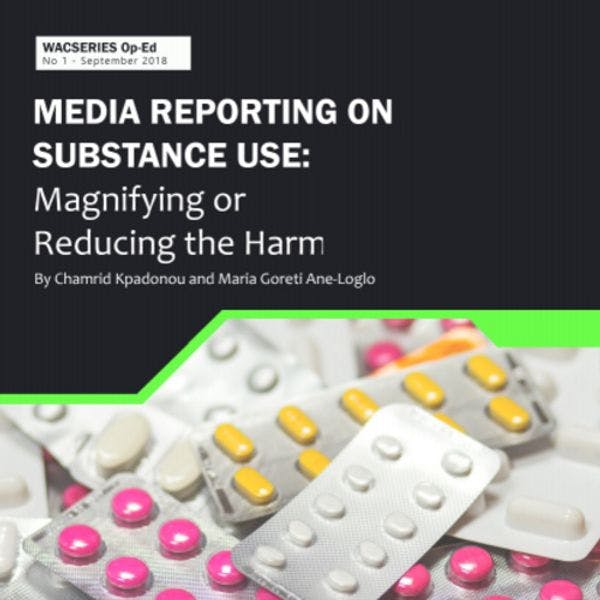WACSI
Media reporting on substance use: Magnifying or reducing the harm?
By Chamrid Kpadonou and Maria Goretti Ane-Loglo
Over the past four months, phrases such as “sweet, sweet codeine” and “end tramadol abuse now” have become very popular in Ghana and Nigeria. These terms emanated from a title of a documentary on codeine abuse in Nigeria produced by BBC - Africa’s Eye, and a campaign launched by the GHOne after a series of documentaries on tramadol abuse in the country. These documentaries have played a significant role in shaping public discourse on substance abuse.
Drug use in general is a topic that rarely features in Nigeria media outlets. The focus has mostly been on arrests and seizures of drugs by law enforcement agencies to show how well the government is doing in terms of fighting the “war on drugs”. Aside specific global campaigns such as the Support Don’t Punish Global Day of Action (26 June)1 , very few programmes and documentaries report and discuss drug use from a public health perspective.
The documentary “Sweet Sweet Codeine” is a remarkable piece of investigative journalist. The authors succeeded in exposing how large quantities of codeine-based cough syrup can be illegally bought from crooked agent of pharmaceutical companies. The documentary abetted to reinforce the need of pharmaceutical company to implement strict control procedures to ensure that such products are sold only to accredited retailers. However, the documentary displays more than a few reporting gaps, which may negatively influence the policymaking process within the region. The report claimed that the abuse of codeine causes schizophrenia. This statement is unproven and reinforces the stigma associated with people who use drugs, which further creates barriers to an effective response to the codeine crisis. Several researches concluded that there was no causal effect between substance abuse and schizophrenia. However, people suffering of schizophrenia are much more likely to have a substance or alcohol abuse problem than the general population. Stigma has a harmful effect on the psychological well-being of persons who use drugs and negatively affect their quality of life. This can lead to a complete rejection by society, discrimination or labelling of people who use drugs. In this regard, efforts must be made especially by the media to change the narrative on people who use drugs.
The documentary failed also to capture the views and perspectives of people who use drugs, and the perspectives of this community were entirely overlooked in the documentary.
Stigma has a harmful effect on the psychological well-being of persons who use drugs and negatively affect their quality of life. This can lead to a complete rejection by society, discrimination or labelling of people who use drugs. In this regard, efforts must be made especially by the media to change the narrative on people who use drugs.
